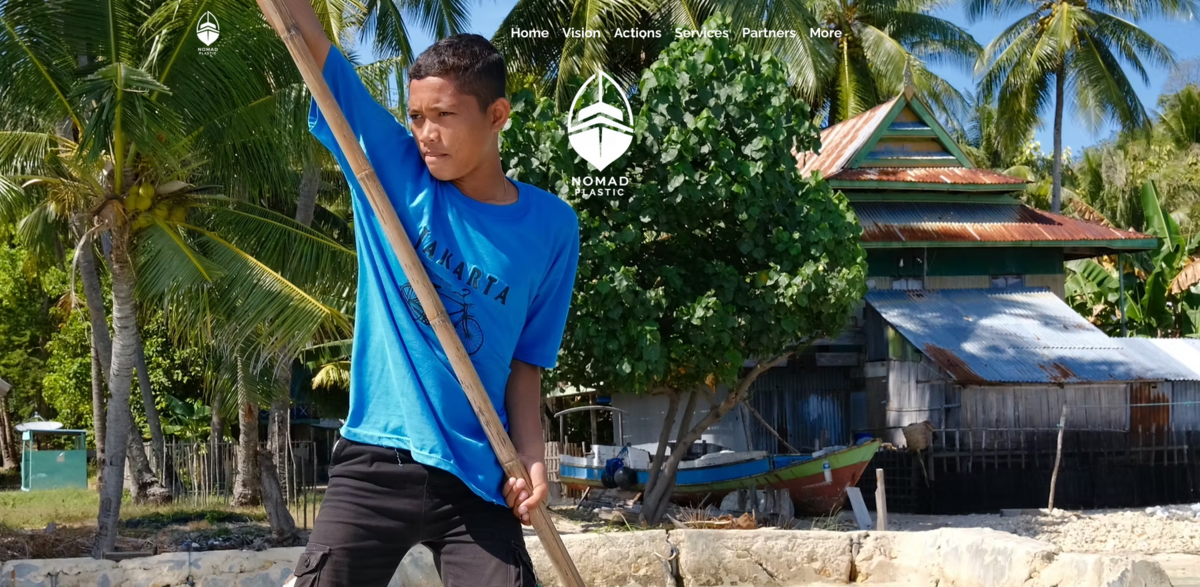What is the Nomad Plastic Project?
Nomad Plastic is a social business focused on developing collaborative and regenerative solutions to tackle plastic pollution in the world’s most threatened biodiversity hotspots. The project uses a unique transitional model that transforms plastic waste into fuel, bringing resilience to local ecosystems, communities, and businesses. Profits generated are then allocated to regenerate nature, creating a positive cycle of environmental and social impact. Their first pilot, Regenerative Cruises in Indonesia, turns low-value plastics collected from remote coastal areas and islands in Flores into fuel that powers cruising boats visiting marine parks and protected areas. This not only helps protect these pristine waters but also generates revenue for local communities.
Main Benefits and Key Facts
Here are some eye-opening facts that highlight why Nomad Plastic’s mission is so urgent and impactful:
- By 2050, there could be more plastics than fish in the ocean by weight if current trends continue (UNEP).
- Ocean plastic leakage is projected to triple by 2040 without decisive action (The Pew Charitable Trusts, 2020).
- Wildlife populations have declined by 69% over the last 50 years (WWF’s Living Planet Report, 2022).
- The biodiversity crisis is driven by ecosystem destruction, including plastic pollution and climate change, threatening local communities that depend on healthy environments for their livelihoods.
- Nomad Plastic measures impact by tracking plastic collection, CO2 emissions, and social/economic performance.
How Does the Model Work?
The Nomad Plastic model is all about engagement and action. It starts with waste collection in biodiversity hotspots, then transforms that plastic waste into fuel through pyrolysis. This fuel powers local businesses—like liveaboard cruises—helping to build a resilient local economy. At the same time, the project allocates revenue to give back to nature, restoring biodiversity and supporting community initiatives. It’s a win-win approach that makes waste management and conservation work hand in hand.
Expanding Beyond Indonesia
While the pilot project in Indonesia is the first step, Nomad Plastic is ready to take this model global. They’re partnering with liveaboards, resorts, corporates, conservation NGOs, and other stakeholders across Asia-Pacific, Africa, and beyond—where plastic pollution and biodiversity loss are most severe. With strong partners like Plastic Odyssey, Geo Trash Management, ENEA Consulting, and Blue Finance, the project aims to replicate and adapt its model to different locations and business cases, growing its impact worldwide.
Community and Environmental Focus
At its core, Nomad Plastic’s work is about ecosystem regeneration and giving back to both nature and communities. The project creates jobs, improves living and working conditions (including health, hygiene, and salaries), and educates local populations through workshops and empowerment programs. It also supports biodiversity protection efforts such as mangrove restoration and expanding marine protected areas. This holistic approach ensures that environmental goals go hand in hand with social and economic development.
Project Impact and Sustainable Development Goals (SDGs)
- SDG 12: Responsible Consumption and Production – reducing plastic waste and promoting recycling.
- SDG 13: Climate Action – lowering CO2 emissions through cleaner fuel alternatives and avoided emissions.
- SDG 14: Life Below Water – protecting marine biodiversity and reducing ocean pollution.
- SDG 15: Life on Land – restoring terrestrial ecosystems and biodiversity hotspots.
- SDG 8: Decent Work and Economic Growth – creating jobs and improving livelihoods.
- SDG 4: Quality Education – empowering communities through education and training.
Consultancy and Tailor-Made Solutions
Beyond building regenerative projects, Nomad Plastic leverages its expertise and experience to offer tailor-made consultancy services. This means helping organizations and entrepreneurs study the feasibility of implementing similar projects, integrating the model, and measuring impact effectively. The goal is to spread regenerative solutions far and wide, inspiring more businesses and communities to join the fight against plastic pollution while restoring nature.






















